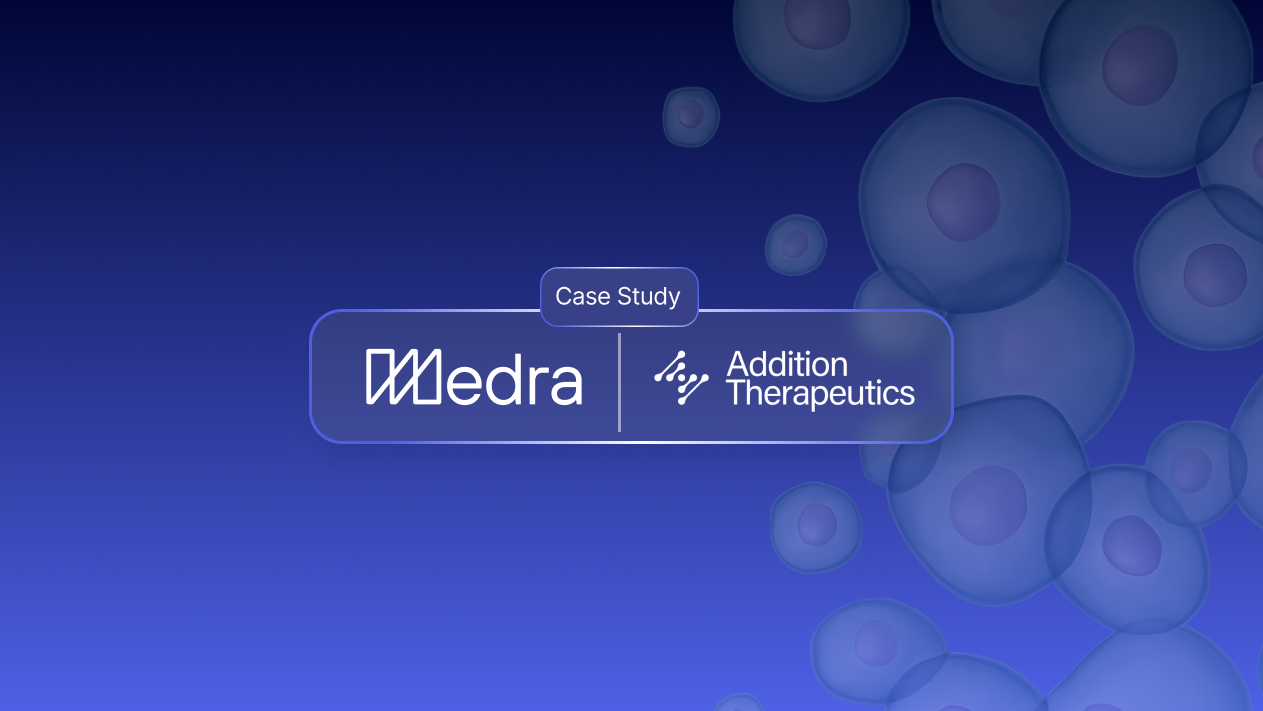The gene editing industry is growing rapidly as scientists invent new techniques beyond CRISPR. Founded in 2021, Addition Therapeutics has developed PRINT™, a groundbreaking technology that uses RNA-based molecules to precisely insert genes safely into our genome without disrupting its functions.
Before any gene editing can occur, the RNA has to enter the cell's membrane, and travel through the cytoplasm to reach the nucleus. Scientists at Addition spend hours running experiments to test transfection efficiency – how effectively the new gene is being expressed in cells, which indicates a successful delivery and insertion of the sequence.
Transfection requires mixing multiple reagents and pipetting them into different wells on a microplate repeatedly. Scientists need to carefully track each step, and errors can force them to have to start their experiments over again. Results can be inconsistent; some cells are transfected more efficiently than others.
Addition partnered with Medra to solve this and scale their operations. Our Physical AI carries out the RNA transfection experiment, while our Scientific AI reasons through the results to optimize it.
Our Scientific AI works by ingesting raw results directly from scientific instruments captured by our Physical AI, and analyzes protocols from electronic lab notebooks and papers as input. It evaluates data to automatically adjust parameters and suggests new actions for the Physical AI to perform. The results from those actions are then fed back to the Scientific AI, creating an iterative closed loop that refines protocols.
For Addition’s experiments, Medra’s Physical AI analyzed plate images, protocol data, and assay results. It learned to fine-tune different actions from pipetting angles to order of operations, generating a new and improved protocol in weeks. Medra’s agents cut control variance down from 36.6% to 3.7%, a 10x decrease over a month.
Our platform also boosted transfection efficiency by up to 35% compared with manual runs performed by Addition’s scientists.
Control
Variance
-10X
Results are more precise
Transfection Efficiency
+35%
Higher success rate
Weekly
Throughput
3X
Saves scientists 50 hours
Medra’s agent has saved Addition up to 50 hours of manual work per week, allowing scientists to spend more time planning new experiments and analyzing results, accelerating the company’s timeline in developing RNA-based therapeutics.
Our platform currently performs up to 3X the weekly throughput of a human, delivering results at a higher quality. It's flexible and can be expanded to support 30X throughput.
As Addition looks to scale operations from dozens to thousands of experimental runs each week, it envisions a new kind of lab that’s fully automated. The team is now working to run ELISAs integrated with electronic lab notebooks using Medra’s agents.
“AI-powered automation is the key to scaling our wet lab operations, and Medra’s rapid execution proves it,” says Francine Gregoire, CSO at Addition Therapeutics. “Their platform has made remarkable progress in just one month and I’m excited to see what we can achieve next.
